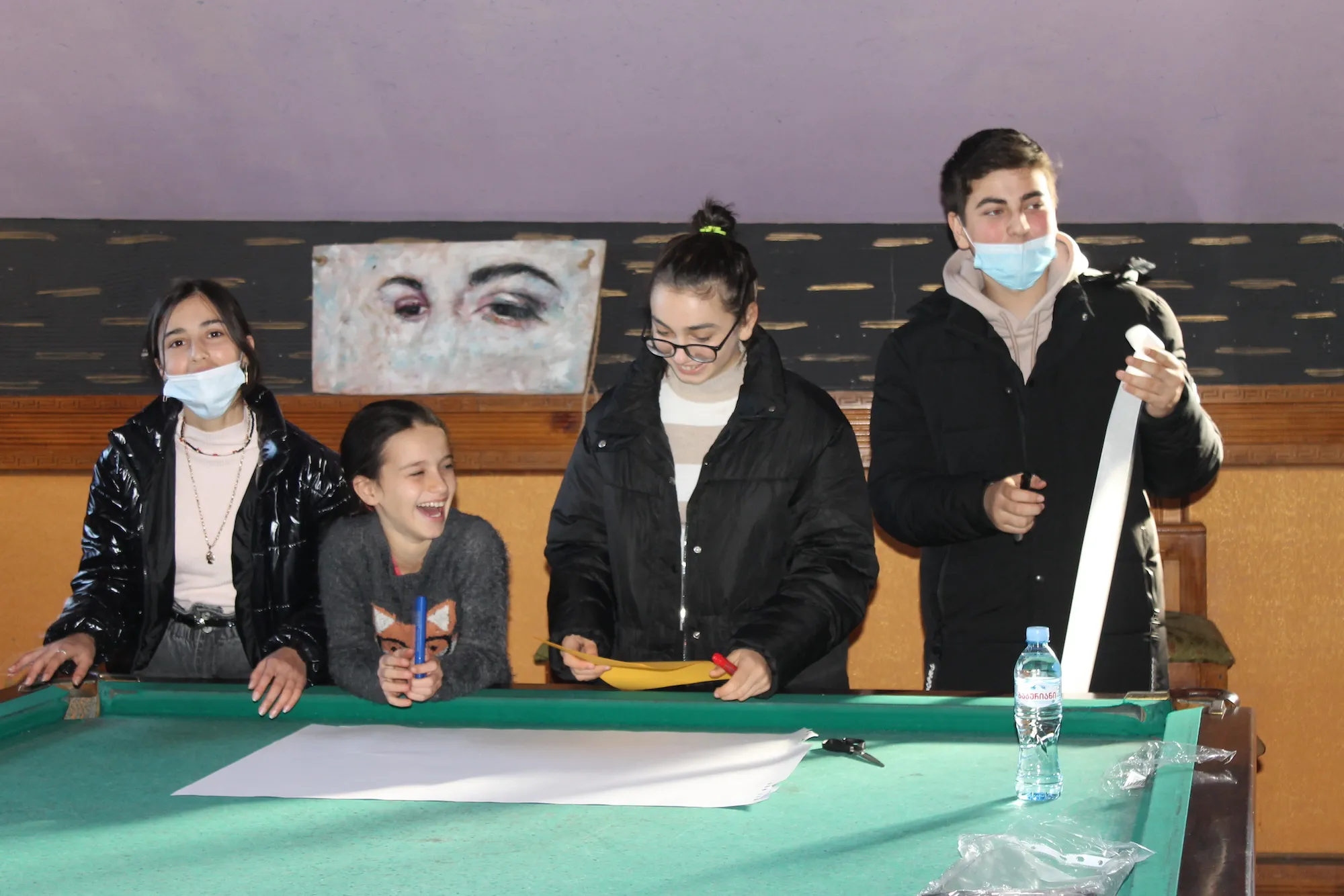This region includes the countries of Georgia, Armenia and Azerbaijan, which contain diverse ethnic groups, where socio-economic challenges have prevented permanent stability and peace in the region. Challenges have worsened recently and there is a great need for investments in peacebuilding.
Students Rebuild is working with CARE to empower young people in the South Caucasus to recognize negative attitudes and biases which have existed between ethnic groups and contribute to the fragility in the region.
Through the Youth Act for Future project, CARE is working with young people across Georgia to challenge long-held prejudices and old hostilities that have burdened past generations. In the village of Samshvilde, a place mixed with ethnic minorities from Armenia and Azerbaijan, there are various differences between ethnic minorities from Armenia and Azerbaijan, due to language barriers, cultural practices, traditional gender roles, poverty, and past conflicts. It is a poor region with few opportunities and places for youth to interact. Here, the ground is fertile for working with young people.
Miriam, a parent who attended an informational session, said there is great need for this project in their village. “Nothing ever happens here,” she says. “Everything is so lifeless here. Our kids have no opportunities. CARE is the first organization that came to work with youth in our village.”
Nino, a participant in a CARE information session in Ganmukhuri, referred to the lack of recreational opportunities: “There is nothing going on. There is no space to meet each other, to watch movies, to chat, or to just have fun.”
Nazi Burduladze, CARE project manager, recalls: “I well remember the first meeting. The youth listened to us but did not speak at all. They were reserved, shy, and even embarrassed to eat during lunch and coffee breaks. Communication was one-sided, but we had good eye contact.”


